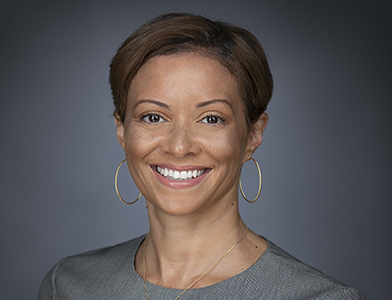Advancing Health Equity Beyond the Doctor’s Office: The Mission of Washington, D.C.’s Health Equity Fund

Director of Public Health
CareFirst BlueCross BlueShield
When we think about healthcare, most of us immediately think about clinical settings. We think about seeing our primary care doctor at an annual physical. Driving through our neighborhood, we take note of a nearby urgent care center we can run to if our child spikes a fever on the weekend. Maybe we consider the virtual option for our next therapy session so we can stay on top of our mental health needs while juggling the other demands on our schedule. What most of us don’t think about are the settings and circumstances that impact our health at far greater magnitudes than our doctor.
As a child growing up in a disinvested neighborhood, I witnessed at an early age that people in my neighborhood experienced opportunity differently than people born into more affluent circumstances. Opportunities for a good education, opportunities to be free from exposure to violence, opportunities to have one good job that covers basic living costs, and opportunities for good health were scarce in my local community. I journeyed into medical school with the goal to do my part in helping people, particularly people who look like me, be healthy. And, what I quickly discovered is that those same differences in opportunity that plagued my community, also prevented many of my patients from attaining their optimal health. We now have widely used terminology for what I observed as a child and as a physician in training, namely inequities and the resulting structural and social determinants of health.
Research has shown us that in reality, the very best care that I could provide for my patients only had a 20% impact on their health outcomes. The large part of what impacts our health is driven by social and structural factors. Where we live, work, play and pray, largely determines how healthy we are.
And Washington, D.C. is no exception. In the 2018 “Health Equity Report for the District of Columbia,” data point after data point reinforces the fact that residents in some neighborhoods disproportionately bear the burden of death and disease, while residents in other neighborhoods flourish. At the time that report was published, a resident in Woodley Park in Ward 3 was expected to live more than two decades longer than a resident in the St. Elizabeth’s neighborhood in Ward 8. Following the COVID-19 pandemic, where we have seen life expectancy decrease across our country, we can assume that those inequities documented in 2018 are even wider today.
To address health inequities our healthcare systems, including payers, providers and public health systems, must work collectively to create ecosystems that make it easy for all people to be healthy. This includes uncovering and abolishing racist policies and practices, optimizing the 20% of clinical impact through delivering high quality care, creating systems that are easy for people to navigate, and strategically investing in our communities to promote equitable—not equal—distribution of resources.
In 2022, the Health Equity Fund was established to improve health outcomes for all Washington, D.C. residents, with a laser focus on those residents who have been historically disadvantaged, as a rising tide lifts all boats. Understanding that health and wealth gaps in D.C. are inextricably linked, it is impossible to narrow disparity gaps in one without addressing the other. United Way of the National Capital Area’s 2023 ALICE Report shows us that 28% of our families with earnings above the Federal Poverty Level cannot afford the basic costs of living in the District. That statistic becomes starker when looking at Black and Hispanic households, of which 63% and 42% respectively cannot afford basic necessities.
There are no lasting solutions to advance health equity in our region without addressing the historical racial wealth gap in our region.
Over the next five years, the landmark $95 million dollar fund will support and advance a sustainable network of people, organizations, and projects to drive economic advancement, address social and structural determinants of health, and foster disruptive and innovative projects promoting health equity. The Health Equity Fund presents an opportunity to demonstrate how strategic investments in communities can target systems and structures to advance health equity and ensure all people reach their full health potential.
Group Hospitalization and Medical Services, Inc. (GHMSI) and DC Appleseed established the Health Equity Fund in 2022 to address healthcare disparities for historically underserved Washington, D.C. residents. Managed by the Greater Washington Community Foundation, the Fund has awarded $21.7 million in grants through two separate funding rounds in 2022 and 2023.
Djinge Lindsay, MD, MPH, is one of seven Health Equity Committee members that governs the Health Equity Fund in partnership with the Greater Washington Community Foundation. Dr. Lindsay is a board-certified family physician and Director of Public Health at CareFirst BlueCross BlueShield. She resides in the Brookland neighborhood of Washington, D.C., with her husband and twin sons.
GHSMI is a CareFirst BlueCross BlueShield affiliate.